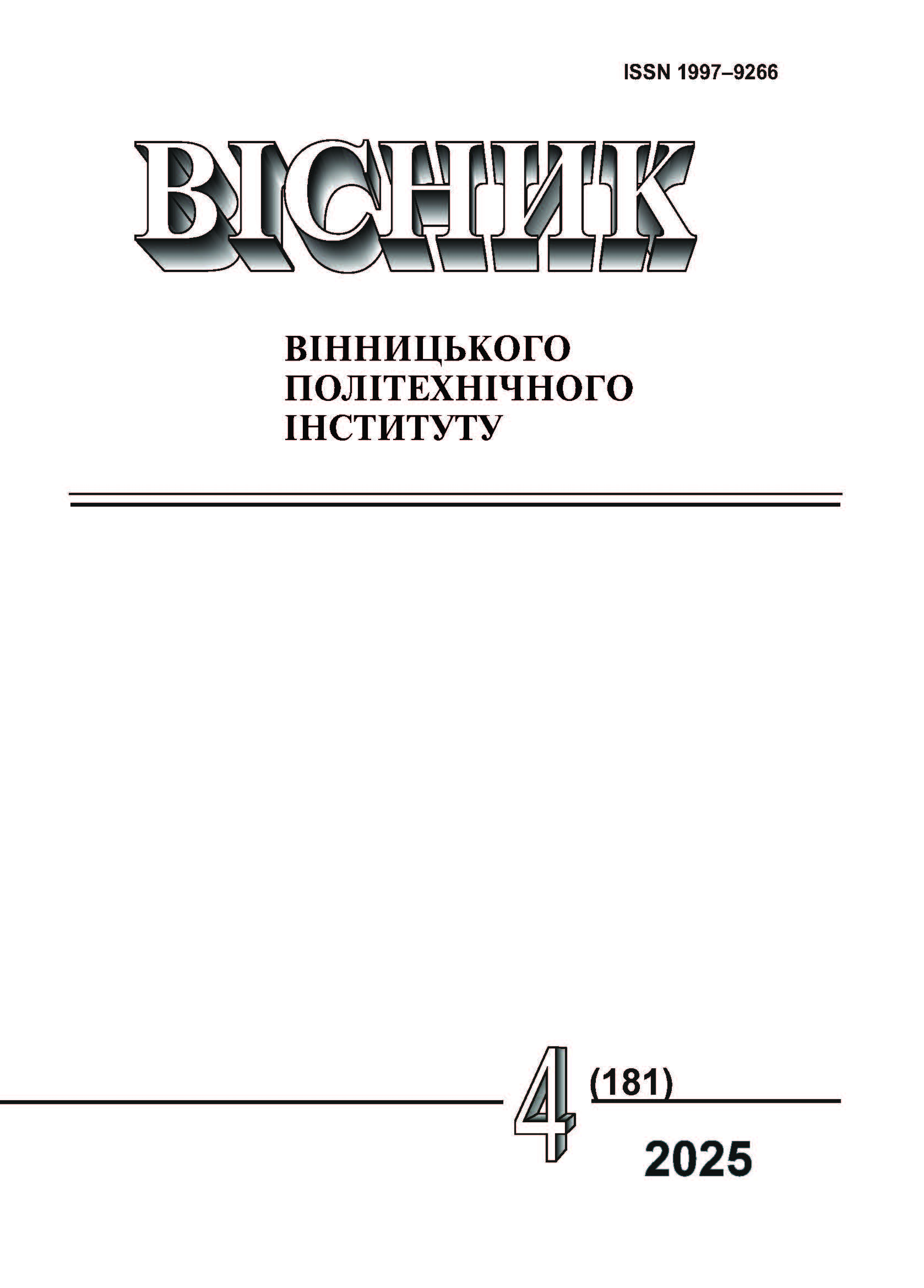Modified Algorithm for Decoding Block Turbo-Product Codes
DOI:
https://doi.org/10.31649/1997-9266-2025-181-4-90-94Keywords:
data transmission, error-correcting code, block turbo-product code, heuristics, decoding, experimentsAbstract
Ensuring reliable data transmission is an essential requirement for modern communication systems. To implement it, an error-correcting turbo-product code can be used, which can work effectively with small information blocks at high code rates, but requires significant computational costs at the data decoding stage, which can significantly load the communication system, especially in real-time mode and under conditions of limited resources. It should be noted that turbo-product code decoding algorithms are difficult to implement effectively. The most common is the Pyndiah–Chase decoding algorithm, which uses a brute force of test codewords, which poses a global discrete optimization task with exponential complexity. It is important to balance the reliability of error correction and the efficient use of computational resources. Therefore, in this article developed a suboptimal modification of this decoding algorithm, which is based on a heuristic procedure for generating a list of probable codewords.
The effectiveness of the modification is shown in experiments using computer simulation of a digital data transmission system, taking into account random information packets and multimedia data. During the experiments, the bit and symbol error rates were analyzed depending on the signal-to-noise ratio in the communication channel. It is determined that the modified algorithm is slightly outperforms its original version in terms of energy gain, and, taking into account the heuristic nature of codeword brute force, has a complexity lower or, in the most unlikely case, the same as that of the basic algorithm. The article can be useful for communication system designers, since it provides an opportunity to analyze and synthesize turbo-product code decoders for use in different practical tasks.
References
C. Berrou, A. Glavieux, and P. Thitimajshima, “Near Shannon Limit Error-Correcting Coding and Decoding: Turbo-Codes,” Proceedings of ICC, pp. 1064-1070, 1993. https://doi.org/10.1109/ICC.1993.397441 .
F. L. Morgos, A.-M. Cuc, and C. Grava, “Performance Analysis of Turbo Codes, LDPC Codes, and Polar Codes over an AWGN Channel in the Presence of Inter Symbol Interference,” Sensors, 19 p., 2023. https://doi.org/10.3390/s23041942 .
R. M. Pyndiah, “Near-Optimum Decoding of Product Codes: Block Turbo Codes,” IEEE Transactions on Communications, pp. 1003-1010, 1998. https://doi.org/10.1109/26.705396 .
A. Dweik, H. Mukhtar, and A. Shami, “Turbo Product Codes: Applications, Challenges, and Future Directions,” IEEE Communications Surveys & Tutorials, pp. 3052-3068, 2016. https://doi.org/10.1109/COMST.2016.2587863 .
C. Douillard, et al, Codes and Turbo Codes, 2010, 424 p.
K. Suman, “Optimization of Heuristic Algorithms for Improving BER of Adaptive Turbo Codes,” International Journal of Advanced Research in Engineering and Technology, pp. 414-421, 2019. https://doi.org/10.34218/IJARET.10.2.2019.040 .
A. Al-Dweik, S. Le Goff, and B. Sharif, “A Hybrid Decoder for Block Turbo Codes,” IEEE Transactions on Communications, pp. 1229-1232, 2009. https://doi.org/10.1109/TCOMM.2009.05.070107.
J. H. Kishore, B. Yamuna, and K. Balasubramanian, “Design of a Fast Chase Algorithm based High Speed Turbo Product Code Decoder,” Proceedings of the International Conference on Advances in Computing and Communications, pp. 1-5, 2022. https://doi.org/10.1109/ICACC-202152719.2021.9708201 .
Ю. Ю. Іванов, Б. О. Боднаренко, Є. О. Звуздецький, і Ю. С. Здітовецький, «Оцінювання складності декодування згорткових турбо-кодів та блокових кодів турбо-добутків,” Вісник Вінницького політехнічного інституту, № 1, c. 51-55, 2024. https://doi.org/10.31649/1997-9266-2024-172-1-51-55 .
C. Leroux, S. Hemati, Sh. Mannor, and W. J. Gross, “Stochastic Chase Decoding of Reed-Solomon Codes,” IEEE Communications Letters, pp. 863-865, 2010. https://doi.org/10.1109/LCOMM.2010.09.100594 .
J. Justesen, and T. Hoholdt, A Course in Error-Correcting Codes, 2017, 226 p.
Yu. Yu. Ivanov, and Ye. O. Zvuzdetskii, “Features of Decoding Block Turbo-Product Codes,” Міжнародна науково-технічна конференція MiningMetalTech, 2023, с. 238-240.
D. Chase, “Class of Algorithms for Decoding Block Codes with Channel Measurement Information,” IEEE Transactions on Information Theory, pp. 170-182, 1972. https://doi.org/10.1109/TIT.1972.1054746 .
Ye. O. Zvuzdetskyi, and Yu. Yu. Ivanov, “List Decoding of Block Turbo-Products-Codes,” Proceedings of the 8th International Scientific and Practical Conference “Scientific research in the modern world,” 2023, pp. 199-201.
Yu. Yu. Ivanov, and V. V. Kovtun, “Crypto Coding System Based on the Turbo Codes with Secret Keys,” ICT Express, South Korea, 2024, pp. 330-335. https://doi.org/10.1016/j.icte.2023.08.007 .
Downloads
-
pdf (Українська)
Downloads: 39
Published
How to Cite
Issue
Section
License

This work is licensed under a Creative Commons Attribution 4.0 International License.
Authors who publish with this journal agree to the following terms:
- Authors retain copyright and grant the journal right of first publication.
- Authors are able to enter into separate, additional contractual arrangements for the non-exclusive distribution of the journal's published version of the work (e.g., post it to an institutional repository or publish it in a book), with an acknowledgment of its initial publication in this journal.
- Authors are permitted and encouraged to post their work online (e.g., in institutional repositories or on their website) prior to and during the submission process, as it can lead to productive exchanges, as well as earlier and greater citation of published work (See The Effect of Open Access).





